Foil has become as much a part of our lives as coffee for breakfast. We use it to cook food and wrap food in it to keep it from spoiling. And although most housewives notice that foil has two sides: one matte and the other shiny, few think about the question: what is this for? And is there a difference which side you put the foil on the baking sheet? Let's figure it out.
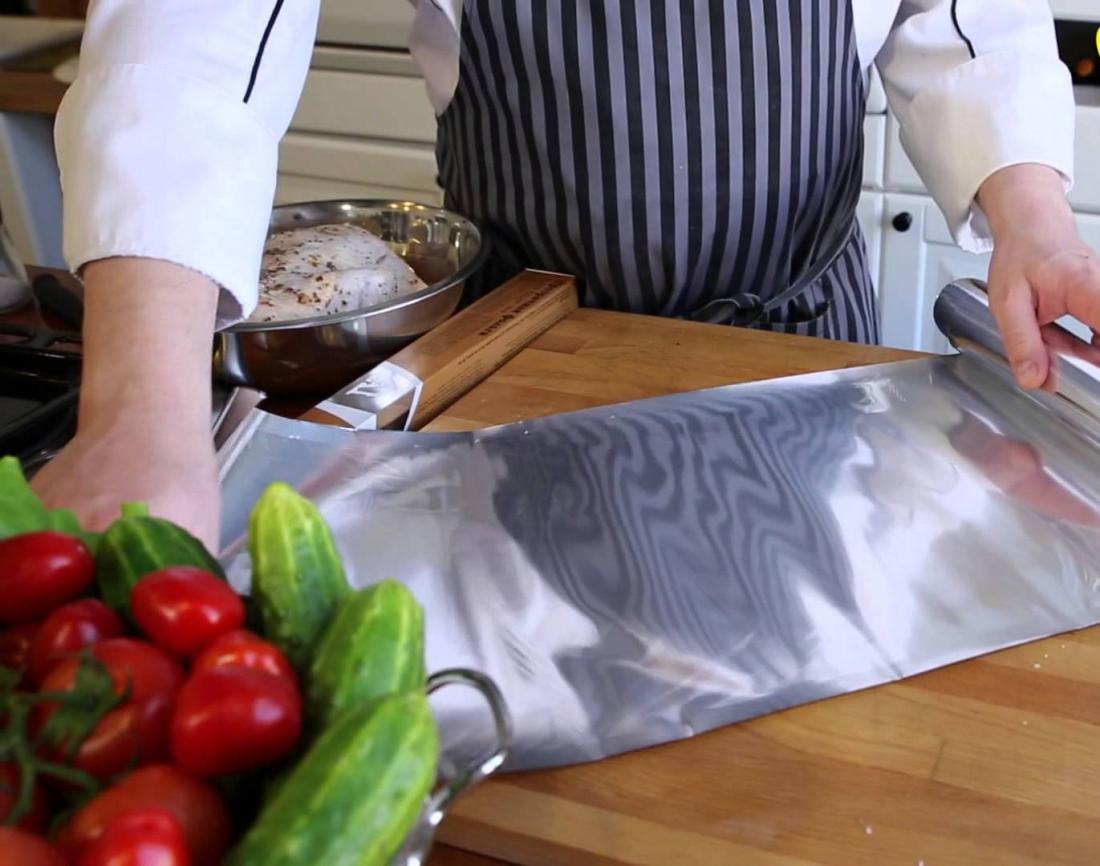
Content
Material Features
Aluminum paper (or foil) is no more than 0.2 mm thick. That is why it is so flexible and easily takes any shape: frying pans, baking sheets or baking pans. This “paper” is not subject to corrosion. Here are just a few of its advantages:
- Good thermal conductivity allows you to retain heat for a long time;
- Does not react with water, food products or even chemical elements;
- Has a small mass;
- Capable of reflecting sunlight and infrared radiation;
- Does not absorb odors;
- Bacteria do not grow in it;
- Absolutely environmentally friendly.
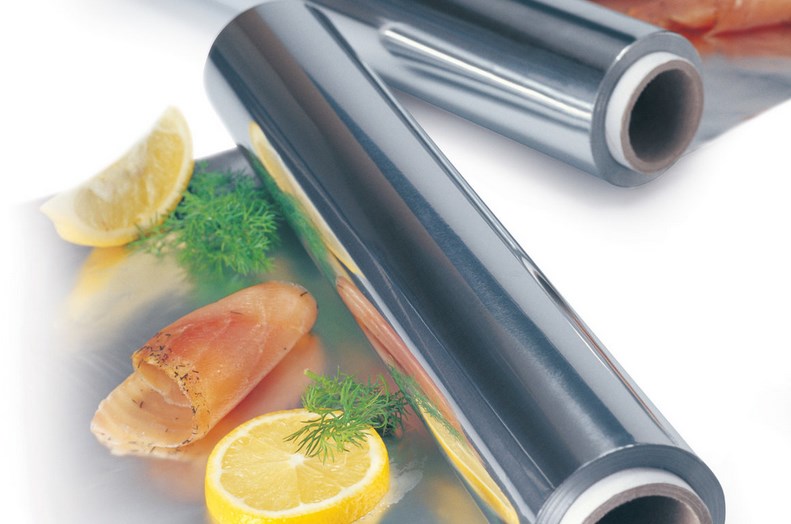
And this is not a complete list of the advantages of "metallic paper". In general, it is not surprising that even novice cooks willingly resort to its help.
Assistant in creating culinary masterpieces
And this is not an exaggeration. Using foil makes meat or vegetable dishes more juicy and flavorful. Due to the fact that the ingredients are protected from the aggressive effects of heat, the cooking process takes place in a gentle mode, which means that all the beneficial properties of the products are preserved.
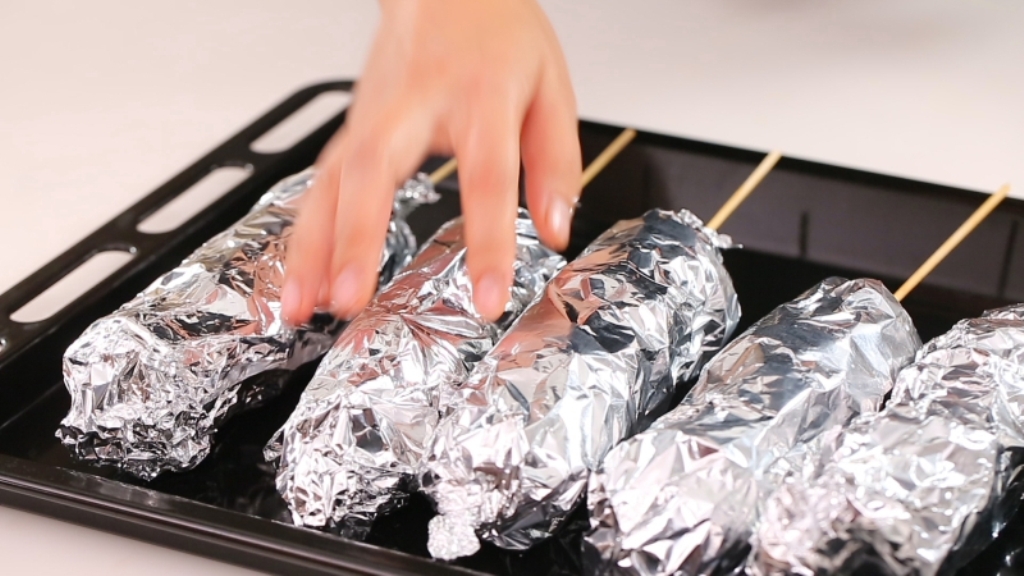
A large piece of meat will be well-cooked and tender without any marinating if it is cooked in foil. And this applies not only to pork or veal, even chicken can be baked whole.
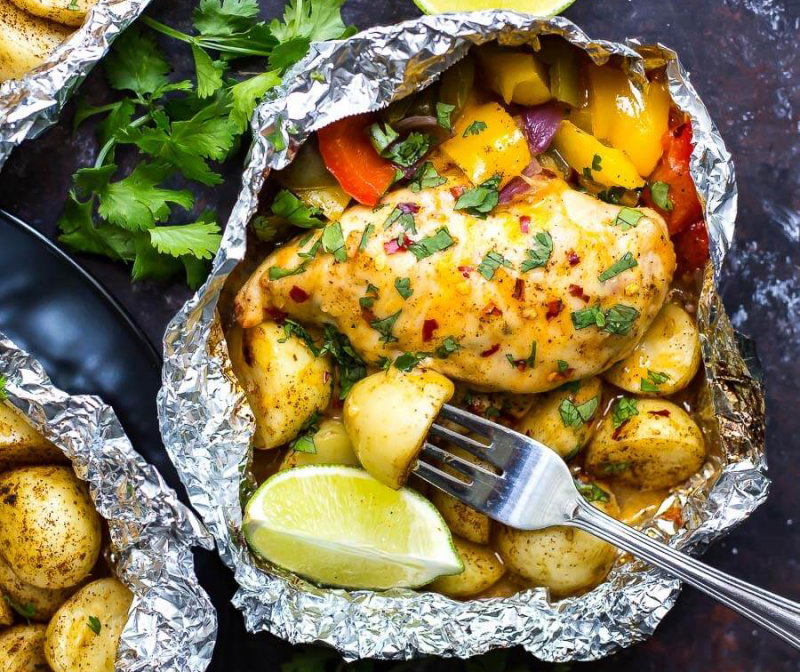
Important! Salt meat dishes after they are taken out of the oven. If you salt them before, too much juice will be released, which will then leak out of the foil.
A special scheme is used for baking vegetables: each vegetable (for example, potatoes or bell peppers) is wrapped in foil separately. Often, in this case, a baking sheet or frying pan is not even used; the vegetables are laid out on a grate. If you are preparing a vegetable stew or casserole, then place the foil in a special heat-resistant dish and only then lay out the dish.
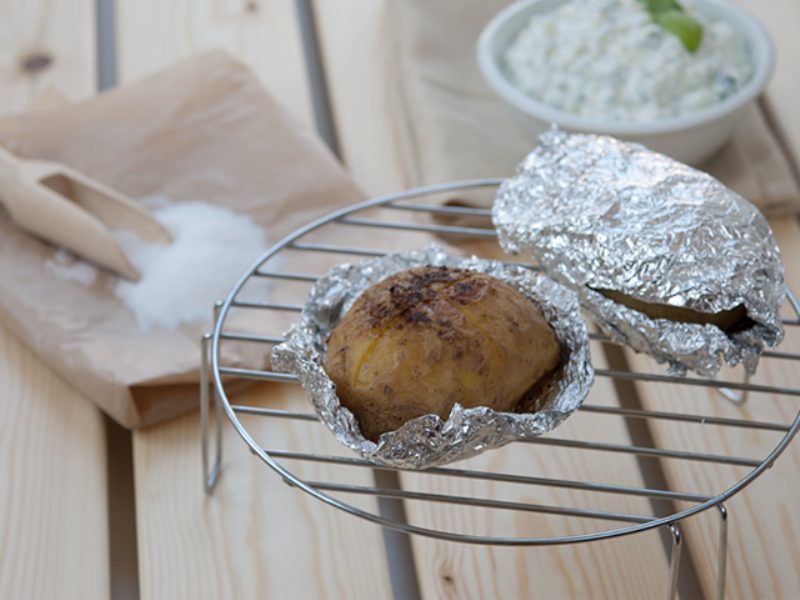
If your foil is less than 0.11 microns thick, use it in two layers, no less.
When choosing the temperature mode, remember that vegetable dishes are cooked for 20-30 minutes at a temperature of at least 100 degrees. And meat culinary delights will require more time and a higher temperature: 30-40 minutes at a temperature of 200 degrees.
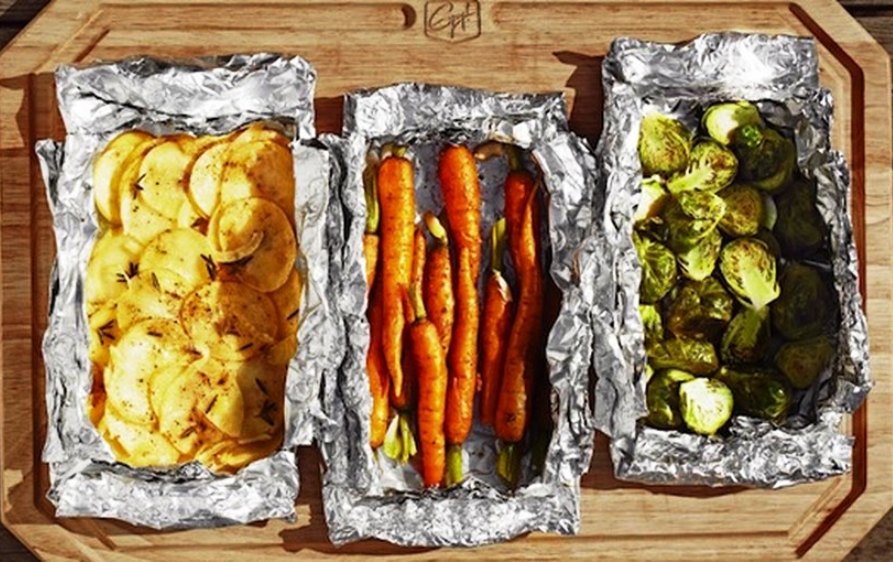
There is an unspoken rule for meat dishes: after turning off the oven, leave the dish in it for another 15-20 minutes. Then, soaked in juice and “saturated” with the aroma of spices, the dish will become even tastier.
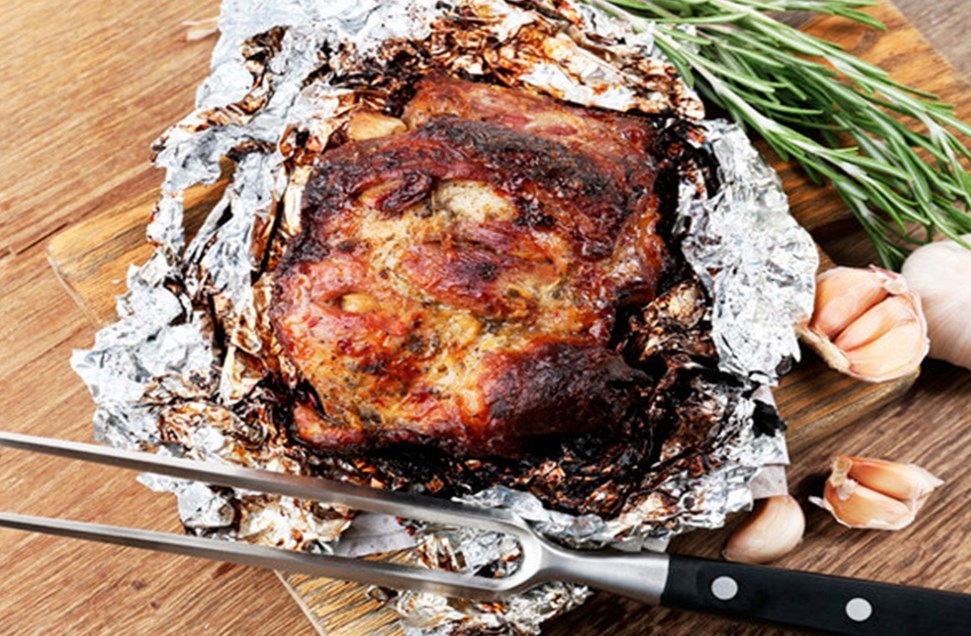
Even a standard pizza will taste better if baked in foil. To do this, lay foil on a baking sheet, put the semi-finished pizza on top, and then cover it with a second layer on top. Bake for 10-15 minutes. Then leave it in the oven for a little while longer with the heat turned off.
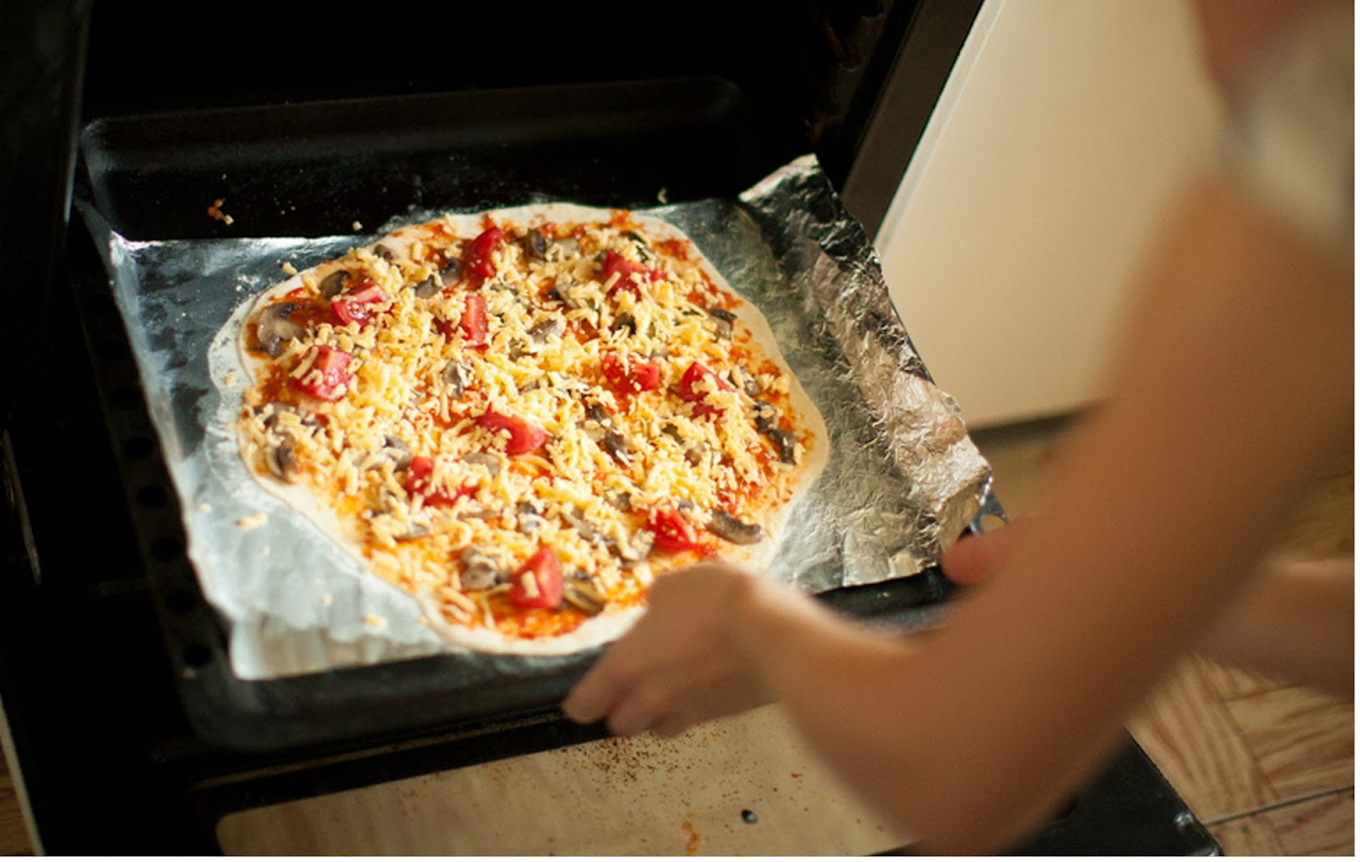
In general, experienced housewives say that even regular potatoes will taste better if baked in the oven rather than fried on the stove. And there is no need to even talk about the benefits of baked dishes.
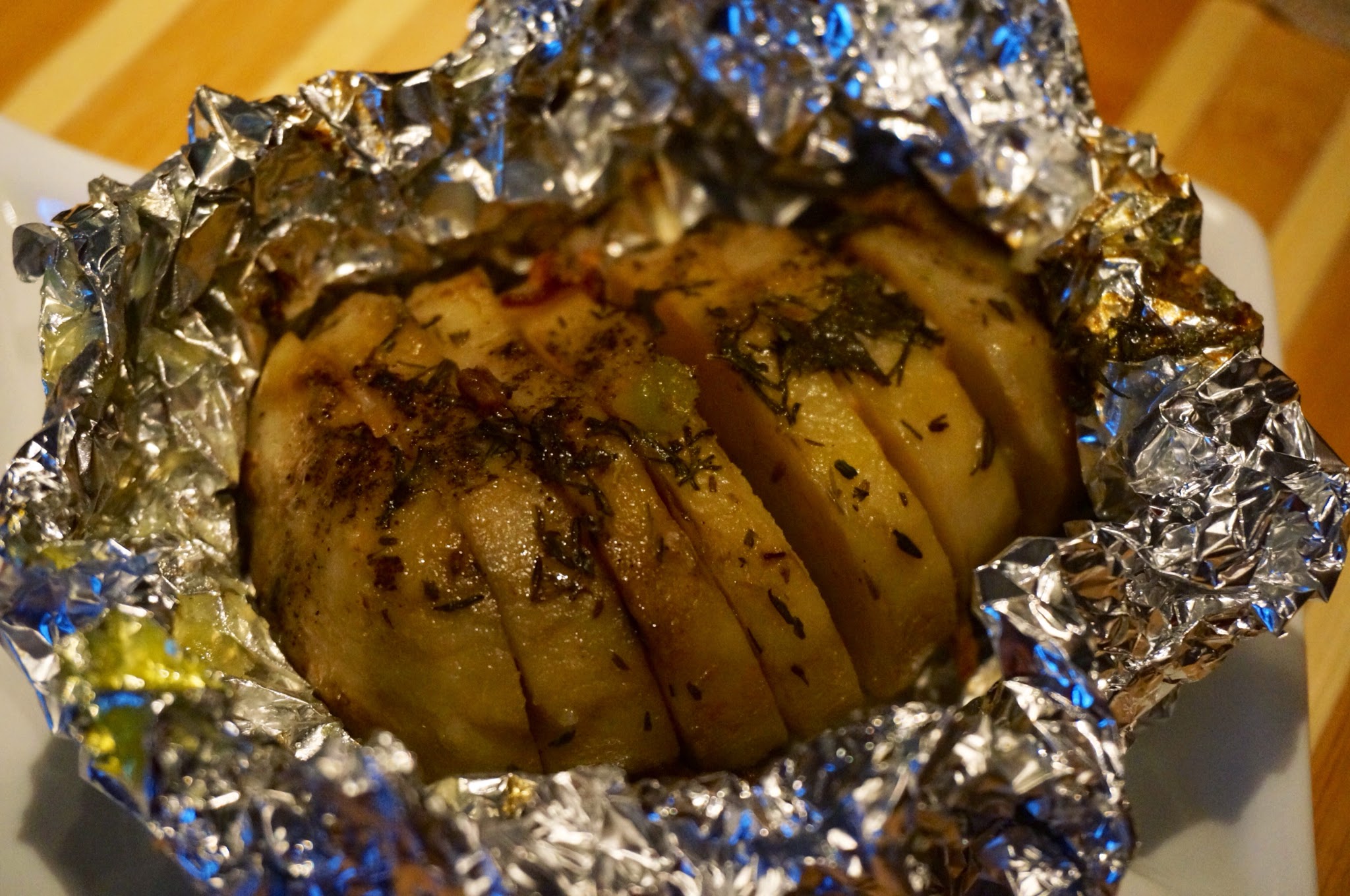
How to lay foil correctly
It only seems at first glance that the answer to this question does not matter. But for some reason, foil has two different sides. By the way, any foil has such a difference, regardless of its thickness and purpose. One side is a pronounced gloss, and the other is matte. And many housewives have been using this “culinary accessory” for decades without thinking, and sometimes without even noticing the difference.
But there is still a difference. Features of gloss:
- Does not stick to food;
- Has antibacterial properties;
- Reflects heat rays an order of magnitude stronger.
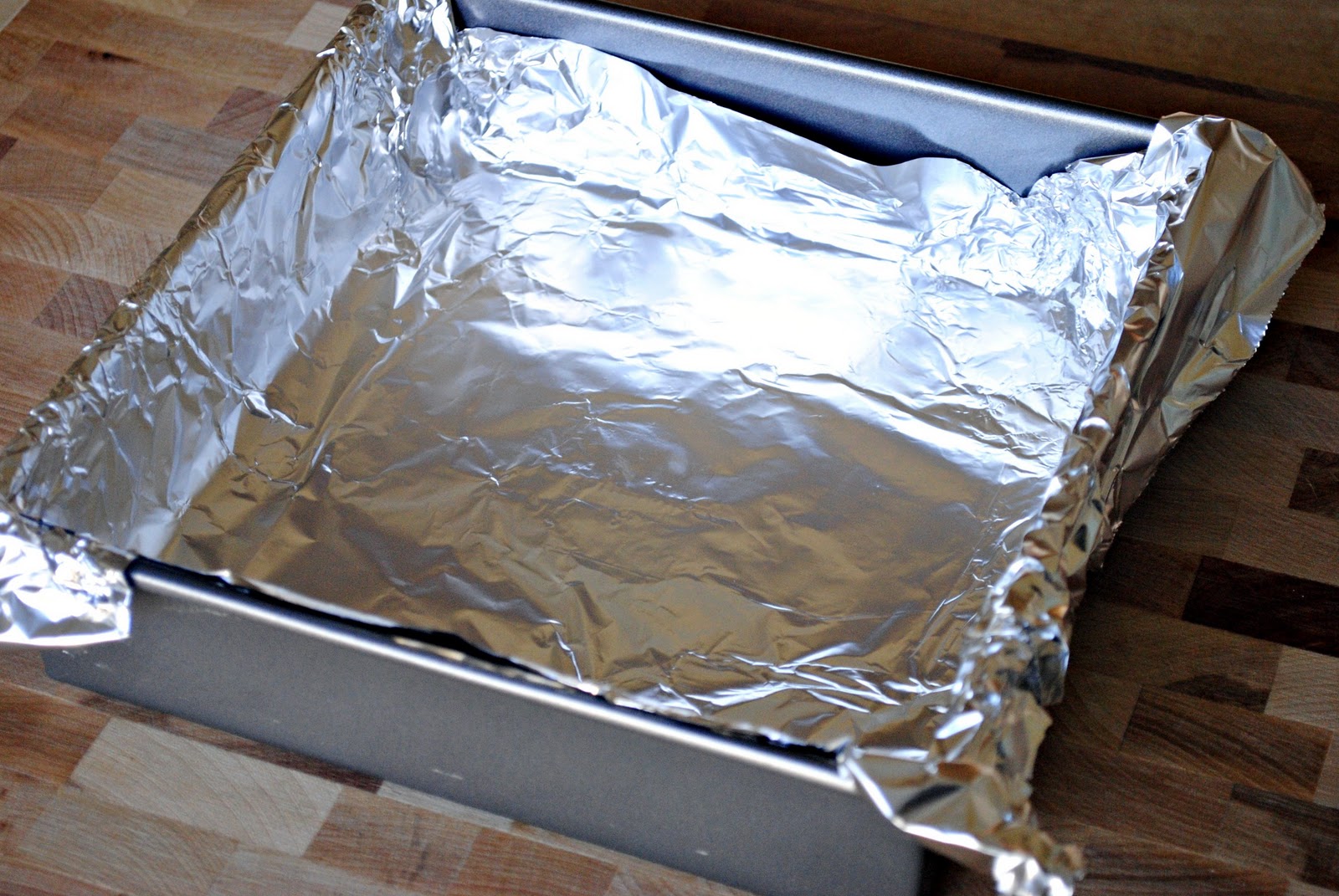
Matte surface:
- Retains moisture;
- Reacts with acidic ingredients;
- Absorbs heat.
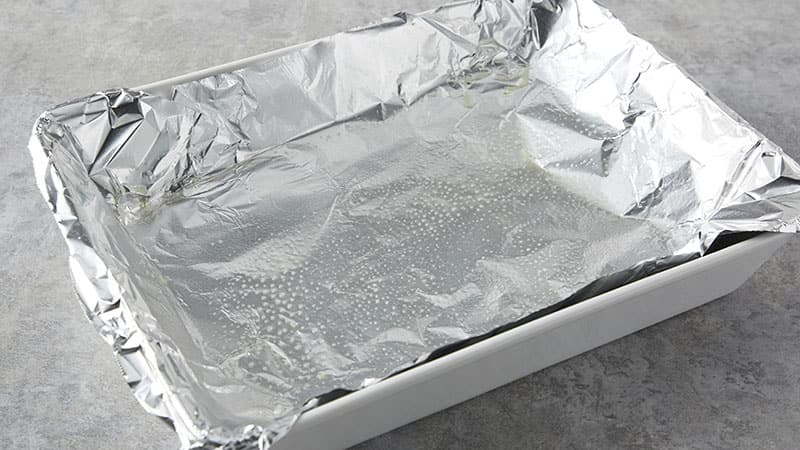
Based on the above differences, let's try to draw a conclusion: how to use foil correctly in different cases. Let's immediately note that the thermal characteristics of different sides differ by less than 10%, which means that this factor will not play a significant role.
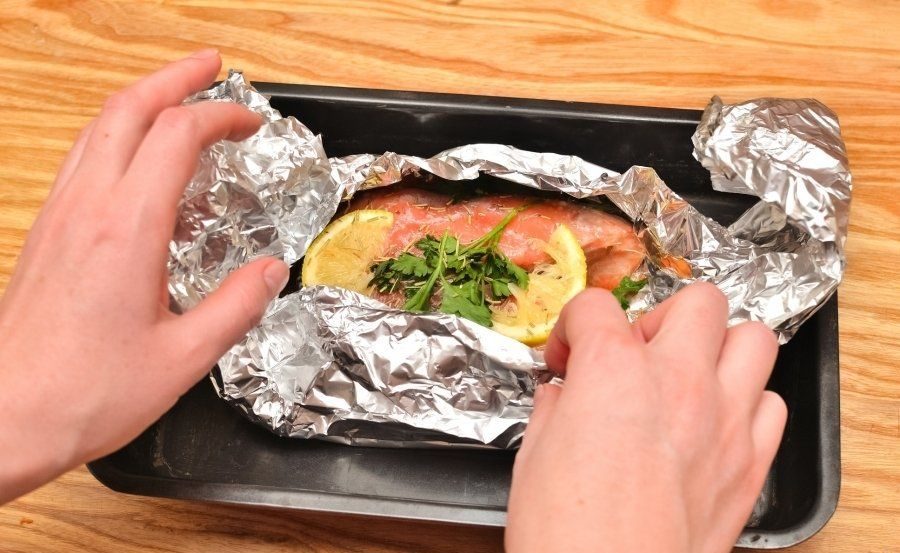
But if we are talking about cooking dishes containing vinegar or another acid, then we will have to pay attention to the sides of the foil. If marinated products are placed on a matte surface, a reaction is possible. And this will affect not only the taste of the dish, but also the health of those who will consume it.
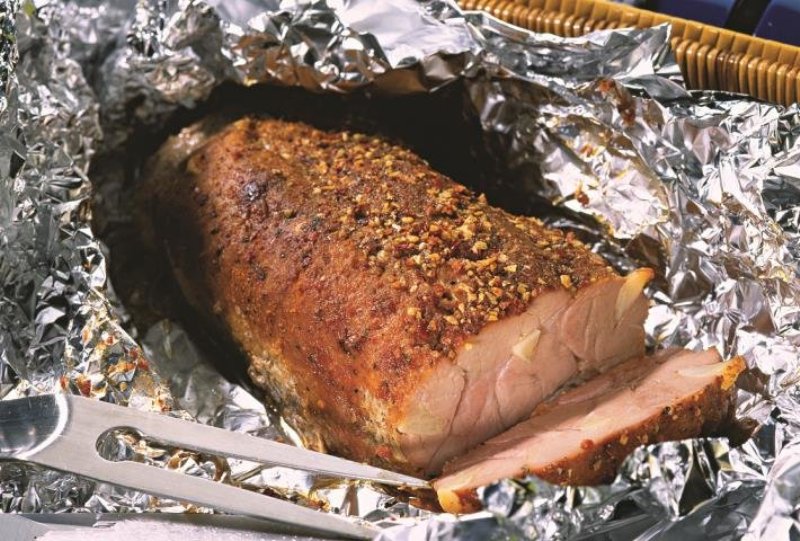
And in all other cases of using metal film for baking or baking, pay attention only to the temperature regime and requirements for the finished dish.
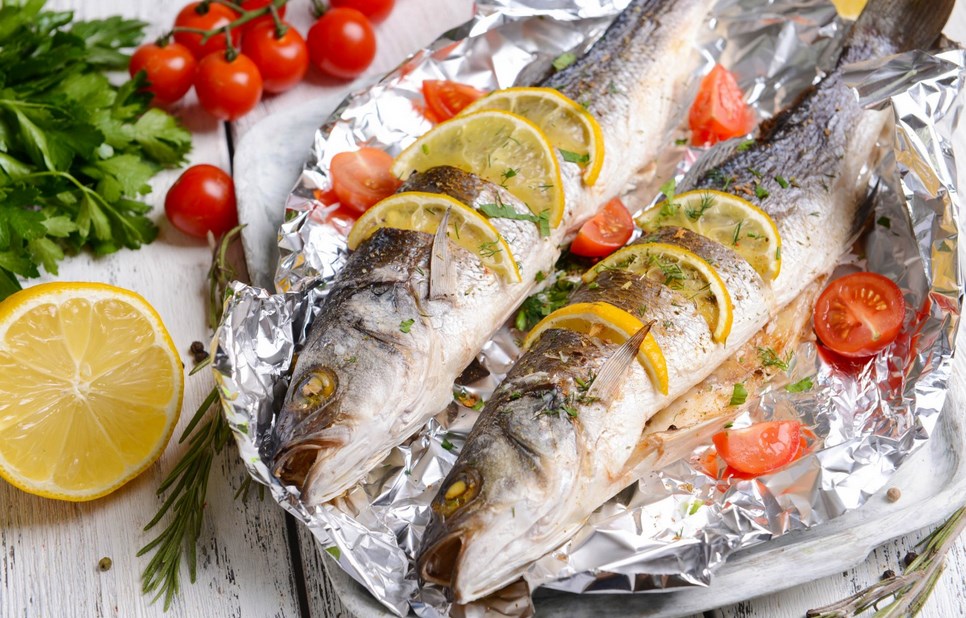
Another trick: to protect the dish from overheating, cover it with foil, glossy side inward. The matte surface will not allow heat rays to penetrate inside and will protect against burning. And if you do not want to use oil, then put the foil on the baking sheet with the matte side down and the glossy side up. Then the finished dish can be removed from the foil without much effort. By the way, this same technique is used to speed up the cooking process.
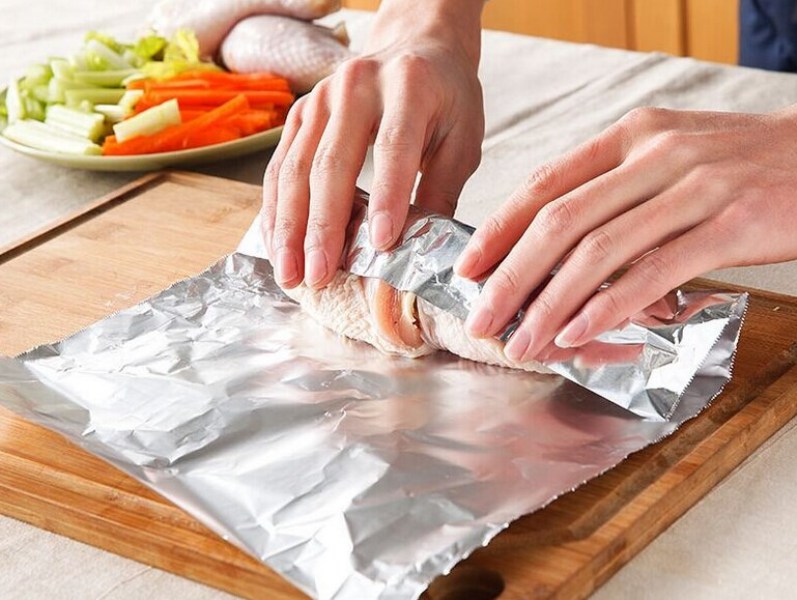
Important: Do not use foil in a microwave oven under any circumstances, as this may cause a fire.
How to properly wrap food in foil
While there are no hard and fast rules for using foil, a few simple tips will help you get the most out of the metal film's beneficial properties.
- Wrap the products tightly, do not skimp on foil. Pay attention to its integrity: if we are talking about storage, even a small hole will let air in and contribute to the spoilage of the product.
- To prevent the products from burning, grease the surface of the foil with oil. But if you are watching your figure and do not need extra calories, bake on a glossy surface, carefully monitoring the cooking process.
When you bake something in foil, juices are released during the cooking process and they should remain inside. - When baking fish, remember that the tail and fins can damage the foil, so carefully remove them before wrapping. When baking whole fish, wrap it in several layers so that there is some free space inside.
- When baking chicken in foil, also wrap it in several layers of foil. This is necessary in order not to lose the juice, which, as a rule, is released in large quantities.
If you use vinegar or lemon in the marinade, it is better to wrap it with the shiny side inward. - If you are baking vegetables, you can wrap them on either side of the foil.
- With the help of metal film, you can "extend" the life of fresh vegetables and greens. Just wrap them in foil so that air does not penetrate inside. And for several days, the vegetables will retain their freshness. It is important that the glossy side is on the inside.
- To keep food warm longer, also wrap it in foil with the shiny side facing in.
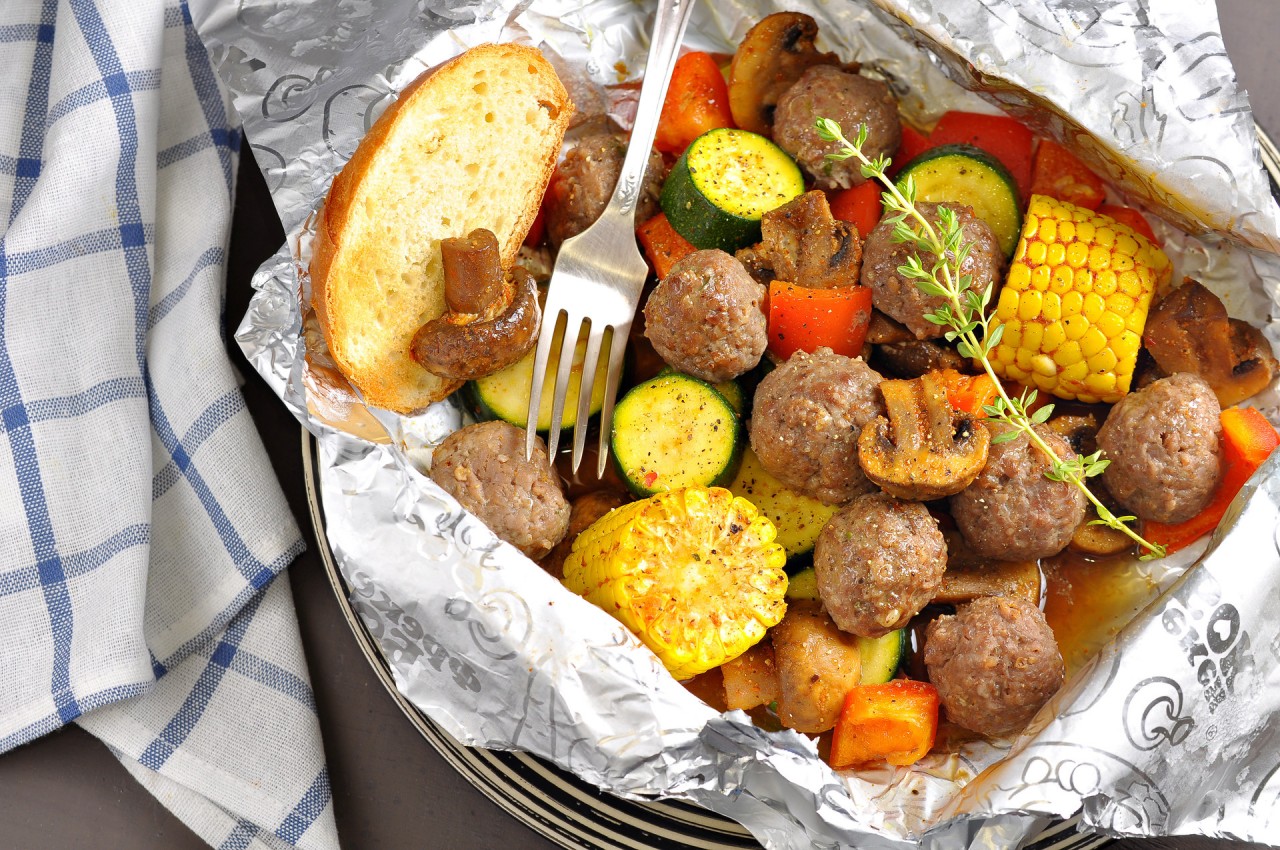
Useful tips
- Since there are many foil manufacturers, give preference to domestic companies. The thing is that the safety requirements for products in different countries are different. And low-quality foil will not only spoil the dish, but also harm your health.
- The aluminum film must be thick and thin. Too thin material is used in several layers.
- If you bake in the oven on a baking sheet, the foil sheets should overlap. Leave at least 2 centimeters for "folding". And it is better to fold the combined edges twice.
- If you need to wrap a large piece of meat (fish), cut two sheets of foil, lay them crosswise, and place the meat in the middle. Then carefully wrap it first with one sheet of foil, and then with the other.
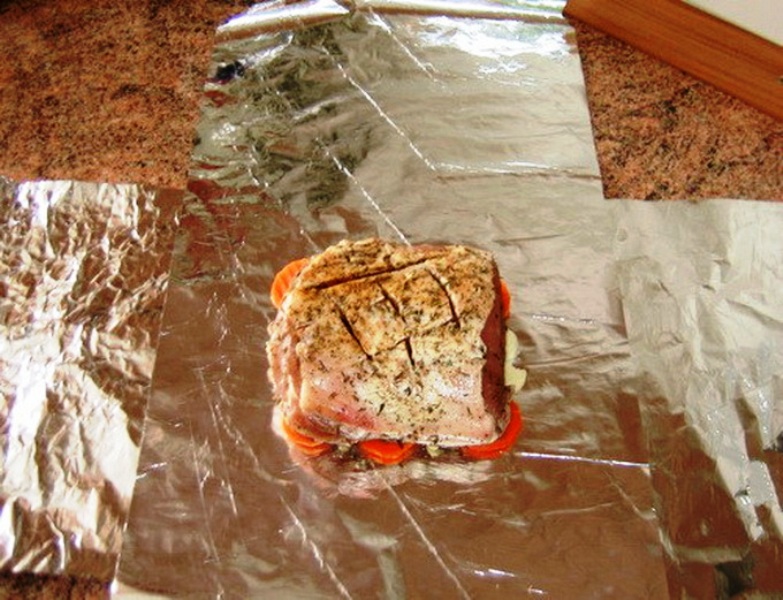
- To avoid holes or cracks, wrap the foil carefully and not too tightly. By the way, you can use a simple life hack to keep the foil intact: turn the baking dish upside down, cut a piece of foil of the required length, carefully place it on the surface, and bend it so that it follows the contours of the dish. After that, turn the baking dish over and place the foil inside.
- To ensure that the dish does not burn or stick to the foil, grease it with oil.
- Not all products can be baked in foil. For example, it is “contraindicated” for cereals, green and soft vegetables, and beef.
- For roasting pork or veal, it is recommended to take a large piece, ideally not less than a kilogram. Then the dish will be juicy and soft. If you bake small pieces, they will turn out dry and tasteless.
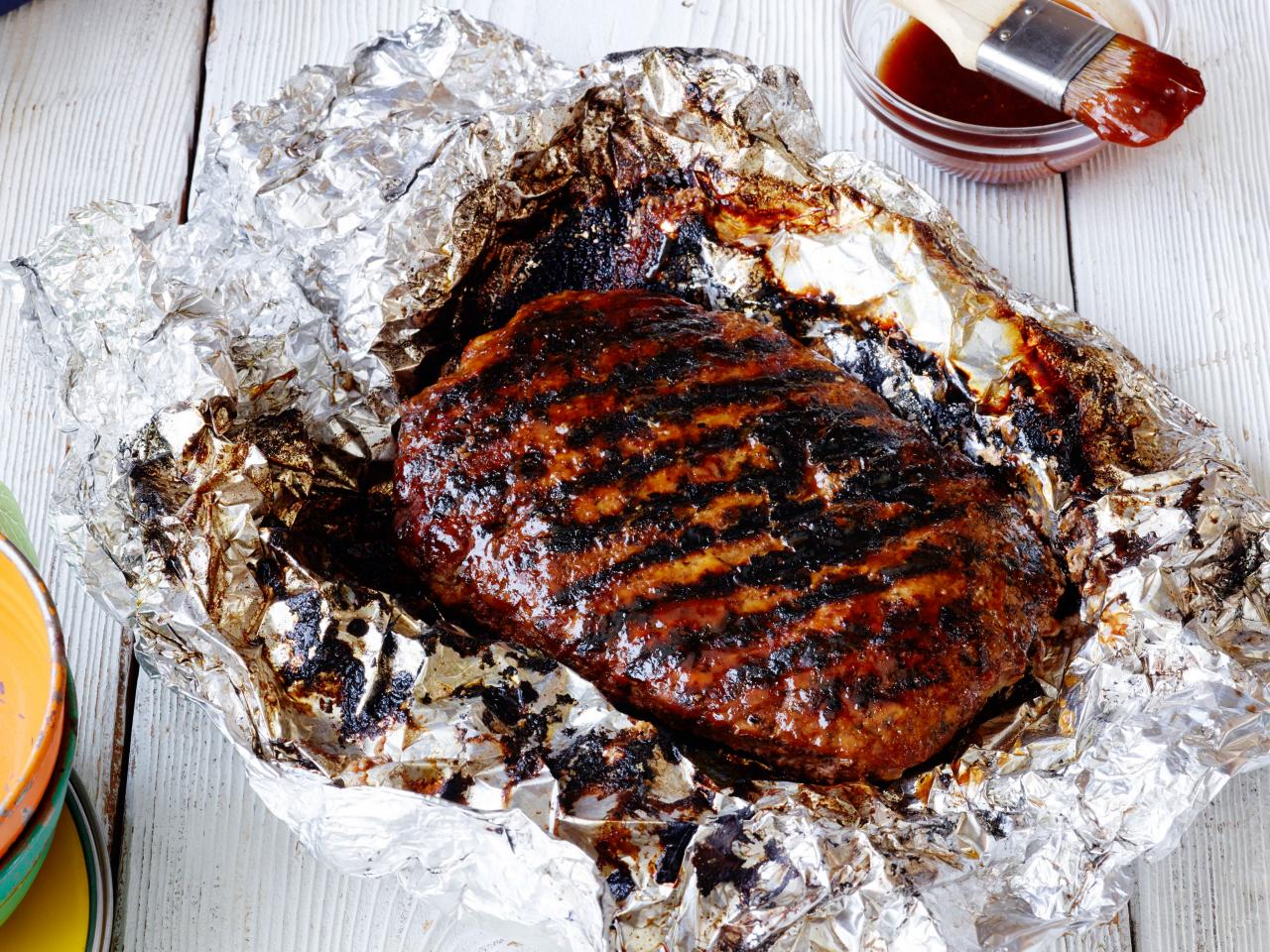
- You can bake any fish in foil: sea or river fish does not matter. The main thing is to remove the fins and tail beforehand.
- When wrapping a whole chicken in foil, first wrap the legs and wings, with the shiny side facing out. This is done to prevent the fragile limbs from charring. After that, carefully wrap the entire carcass in foil.
- To make a delicious stew, you not only need to line the bottom of the pan with foil, but also cover the dish with a “lid” made of this metal film.
- Before placing the meat in foil in the oven, it needs to be preheated for half an hour.
- If you want the dish to acquire a nice crispy crust, you can use one of two methods: either make holes in the top of the foil, or 10-15 minutes before the end of cooking, unfold the foil and put the dish back in the oven. If the first method is preferable for you, then remember that the holes must be made very carefully, making sure that the juice remains inside.
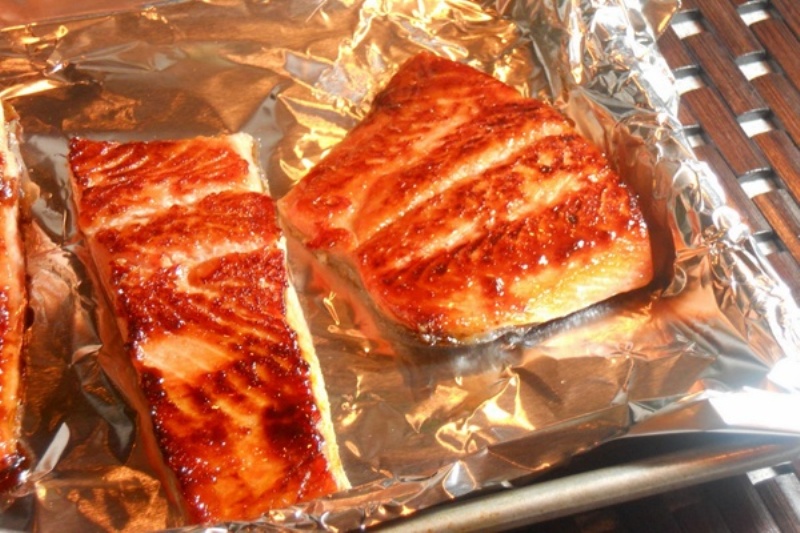
Simple and delicious: recipes for baking in foil
To please, and sometimes surprise, your guests, it is not necessary to be a culinary guru. Use simple recipes and be sure that your loved ones will appreciate them.
Pork
Stuff a piece of pork (about 1.5 kg) with garlic, then rub with a mixture of salt and pepper. Wrap in foil and put in the refrigerator for several hours.
Preheat the oven to 200 degrees and put the meat in there. Cook for at least 1 hour. Then remove from the oven, cut the foil, and wrap the edges so that the top is open. Put back in the oven for 20 minutes.
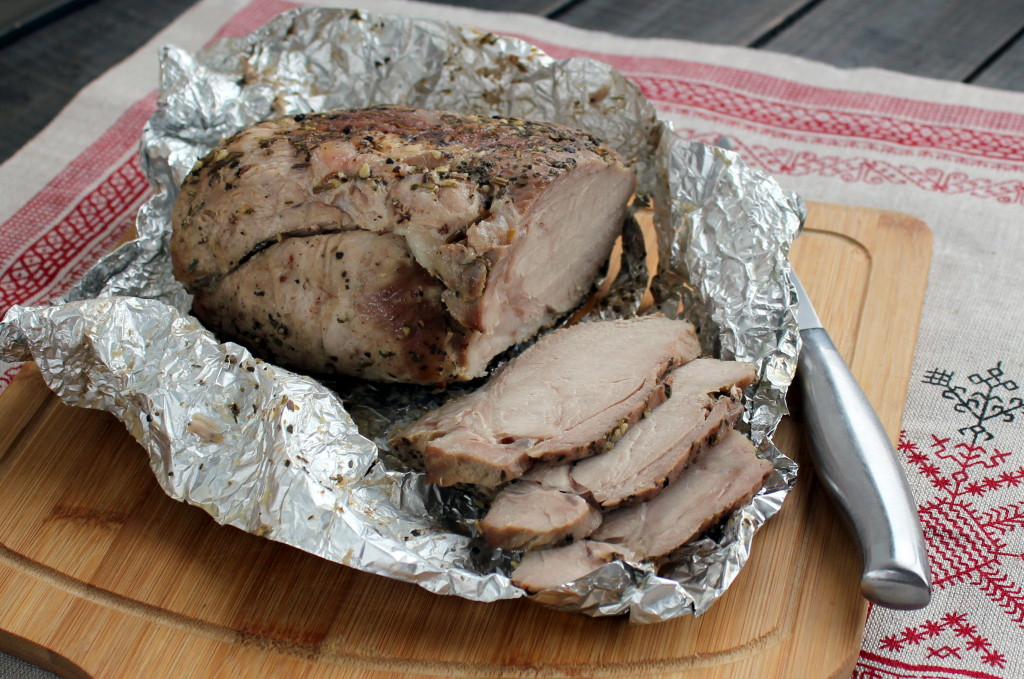
Fish
Fish is prepared in approximately the same way. Only garlic is excluded, and a mixture of lemon juice and vegetable oil (olive or sunflower) is used as a marinade.
And it will take much less time to cook – about 30 minutes.
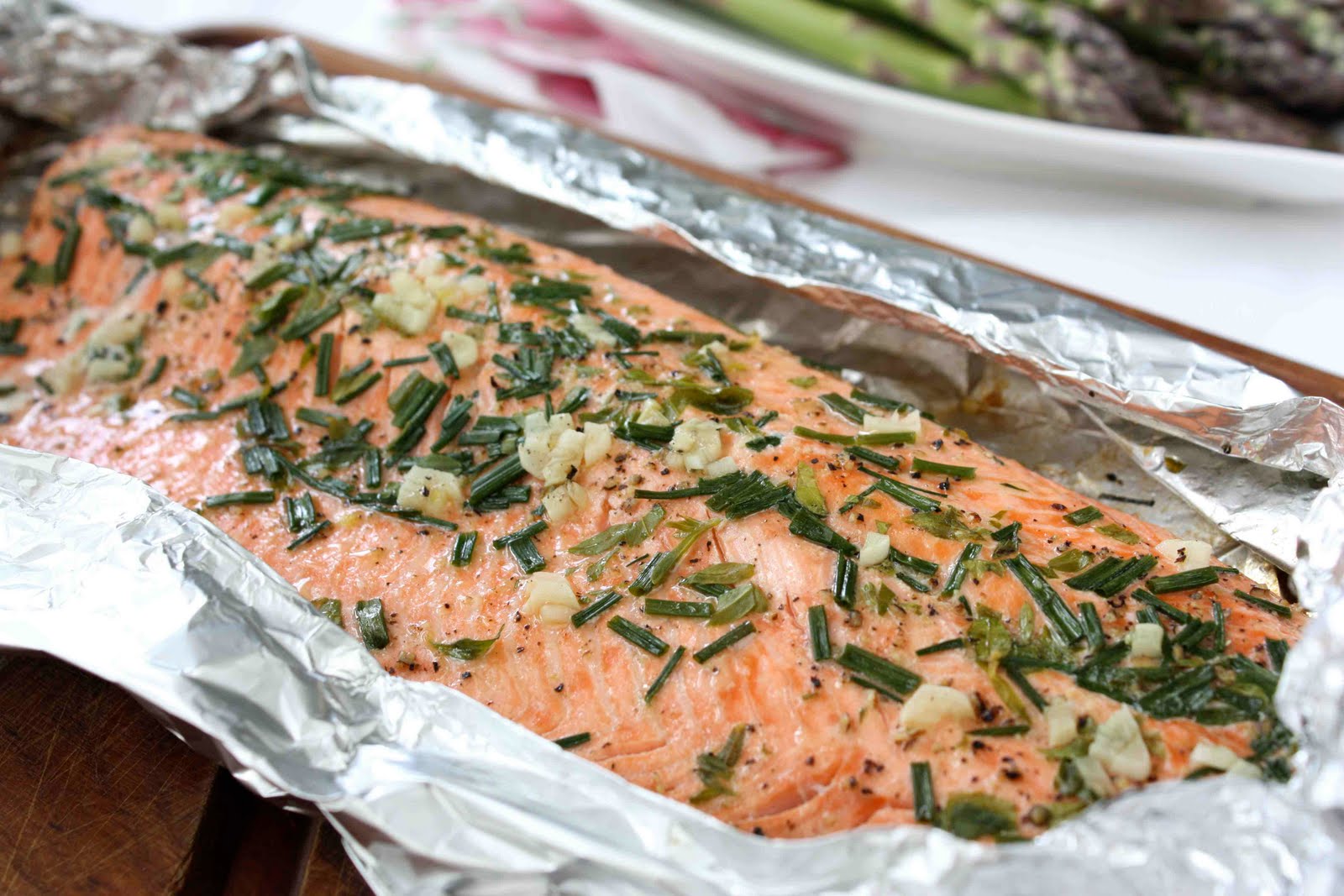
Chicken
And again, nothing new: rub the carcass with garlic and a mixture of salt and pepper. By the way, some people prefer to marinate in soy sauce.
The baking time is slightly less than for pork and slightly more than for fish – 35-40 minutes. 10-15 minutes before the end of frying, open the foil and let the chicken brown.
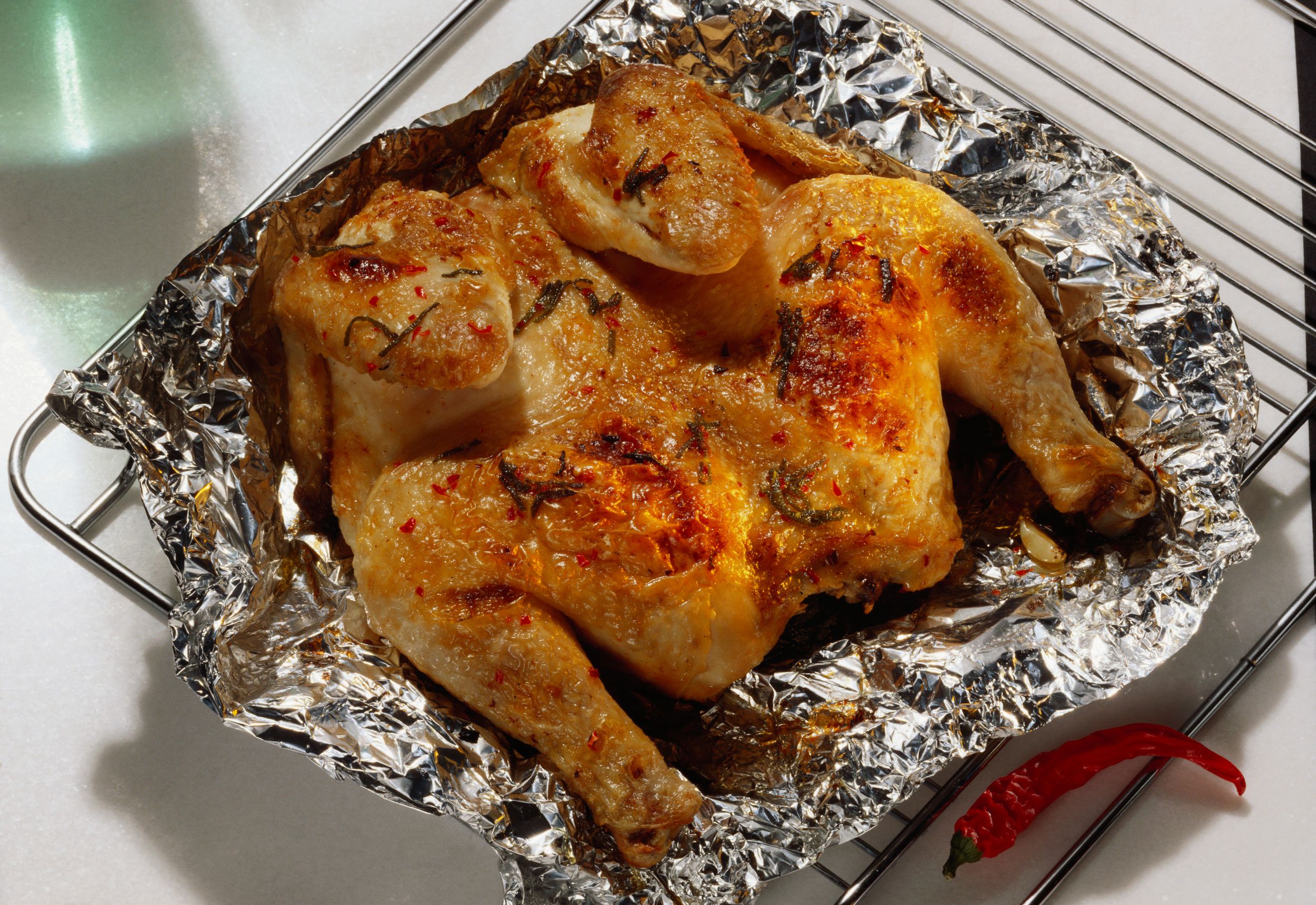
Surely you have noticed that the preparation of each dish will require a minimum of effort and skills. It is all about the features of the marinade and the use of metal film. Obviously, the correct use of foil will help make the cooking process exciting, and the result - amazing.
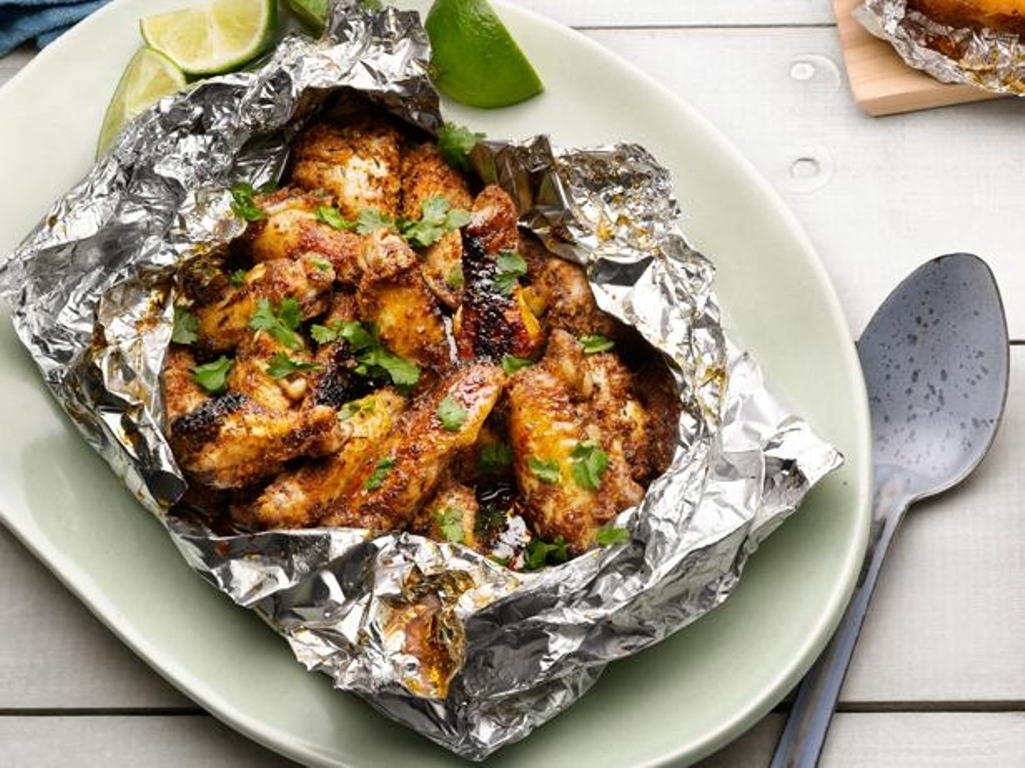

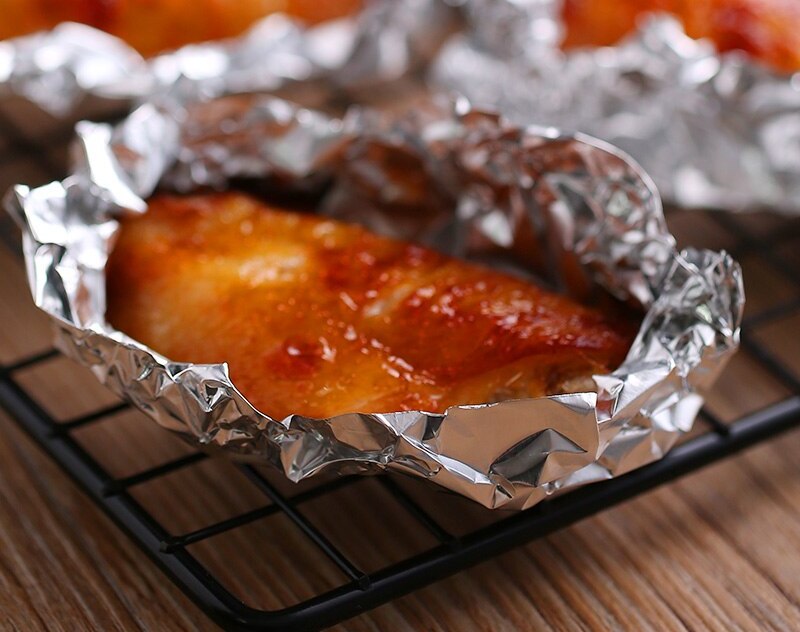
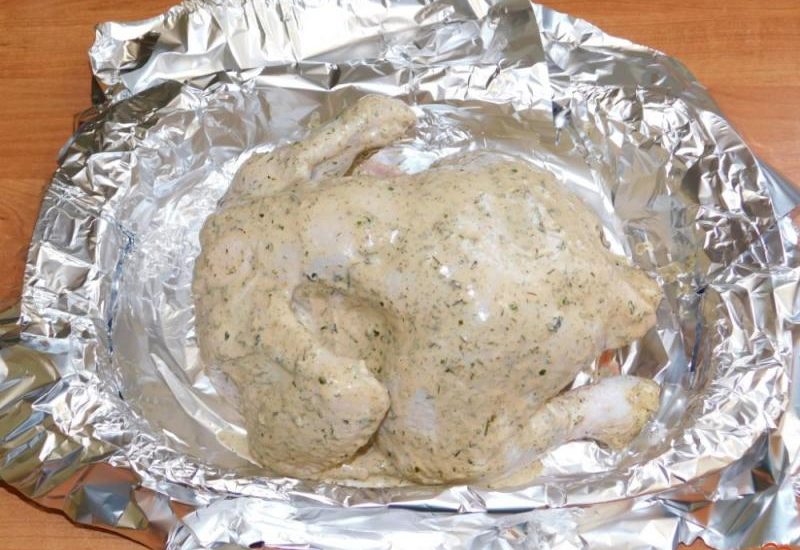
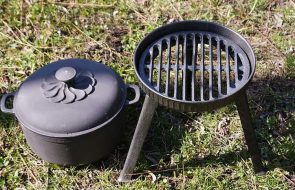

I cooked (in a roaster/portable/electric oven) frozen mackerel, after defrosting it, in foil at a temperature of 135-150°C for only 30-40 minutes.
I also tried baking potatoes in foil (at the same temperatures) and apples... the latter takes a long time to do and it's not always clear whether it's ready.
as it seemed to me, the products in foil are not only baked in their own juice, but also, as it were, cooked “steamed”, which practically does not come out of the “package”, if there is enough of it.